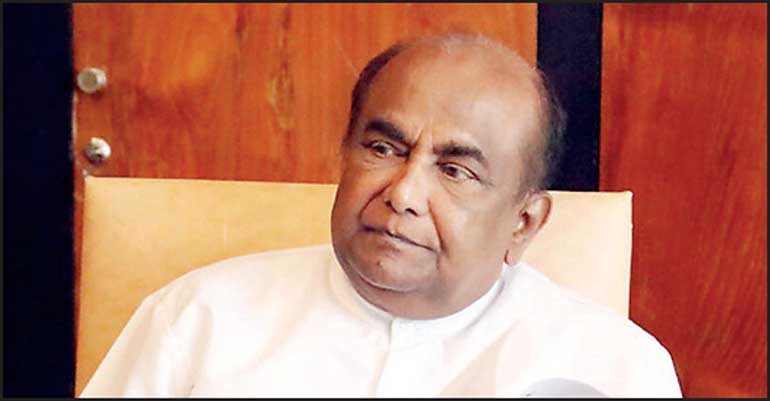Sunday Feb 15, 2026
Sunday Feb 15, 2026
Wednesday, 3 July 2024 00:32 - - {{hitsCtrl.values.hits}}

Speaker Mahinda Yapa Abeywardena
Speaker Mahinda Yapa Abeywardena yesterday announced the Supreme Court’s determination on the Economic Transformation Bill in Parliament, revealing that the apex court found several clauses in the proposed bill inconsistent with the Constitution.
Under Article 121(1) of the Constitution, the Supreme Court reviewed the Bill and proposed several amendments to align it with constitutional principles. Key recommendations include deleting certain clauses, empowering the Economic Commission, clarifying qualifications and procedures, and removing inconsistencies with the Constitution to safeguard its integrity.
These amendments address several key areas, highlighting the following revisions.
The Supreme Court proposed removing Article 4 from Clause 8 to streamline Parliamentary oversight and deleting Clause 13(b) and addressing the need for an independent regulator through separate legislation, empowering the Economic Commission in Clause 13 to manage financial assets, and revising Clause 15 to meet constitutional requirements for State land use.
Further amendments clarify qualifications and employment terms for the EC Director General in Clause 26 and update language in Clause 45 from ‘investor’ to ‘investment’ for clarity.
Clause 46(5) was proposed to be amended to set specified time frames for Ministerial referrals to the Cabinet, and Clause 48(2) to be amended for the appointment process of the Invest Sri Lanka Board.
Amendments proposed in Clause 55(2)(b) calls to remove outdated references, while Clause 57 requires Parliamentary approval within three months for all issued Orders.
According to the Speaker, the Supreme Court found Clause 55(2)(b) needs updates to remove references to repealed laws, while Clause 57 requires amendment to mandate Parliamentary approval for all Orders issued under this section within three months.
Other proposed amendments include deleting Clause 64(d) to restrict Zones SL to recommending lands for investment zones only, clarifying qualifications and terms for the Zones SL Chief Executive Officer in Clause 75, and extending the timeline for Specified Institutions to provide reasons for refusal in Clause 90(2).
The Speaker said Clause 90 also necessitates a new sub-clause for prompt Ministerial escalation in cases of denied requests. Additionally, Clause 94(2)(5) should delete references to outdated laws, Clause 96 needs revision to require Parliamentary approval for Orders within three months, and Clause 147 should specify qualifications for the Executive Director of the Productivity Commission.
Additionally the Speaker said the Supreme Court found that Clause 175 requires clarity on the qualifications of the Director of the Institute of Economics and International Trade, while Clauses 192(1) and (2) are recommended for complete removal.
“Clause 194(2)(m) should be amended for consistency with amended Clause 55 and include provisions for employee rights, and Clause 194(2)(n) needs specific time frames for voluntary retirement schemes. Amendments in Clause 195 are necessary for consistent definitions of ‘BOI’ and ‘Minister’, while Clause 196 aims to rectify inconsistencies in legal text interpretations. The provision to Clause 55(2)(b)(iv) requires deletion of outdated references, and Clause 55(2)(b)(v) should be deleted to align with constitutional rule-making powers,” he said.
Pending these amendments, the Supreme Court believes the Bill can pass with a simple majority while upholding constitutional integrity.
President Ranil Wickremesinghe has declared a pivotal move towards economic stability with the introduction of the Economic Transformation Bill. Emphasising the bipartisan nature of this initiative, he underscored the necessity for any future Government to uphold this agreement to effectively rejuvenate the national economy.
